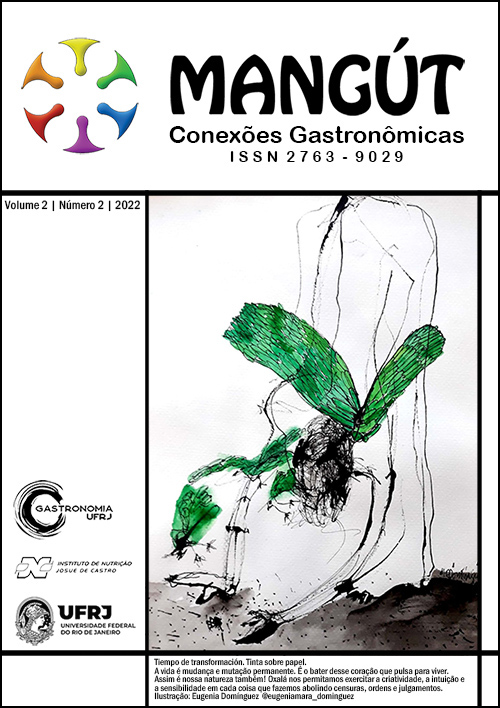Teaching, research and extension trajectory of the UFRJ Gastronomy course
DOI:
https://doi.org/10.70051/mangt.v2i2.55088Keywords:
Gastronomy, Education, Higher education, Research, University extension,Abstract
The gastronomy course at UFRJ was created in 2010 from the demand for university expansion. This work aims to present its trajectory of teaching, research, and extension throughout its 11 years of existence. It is based on documents from the legislation and the internal collection of the UFRJ. The undergraduate program is a bachelor's degree with 3,000 class hours, distributed among theory, practice, and internships in food, hospitality, health, and management. The university extension includes 17 actions among projects, courses, and a program on the themes of management and entrepreneurship, sustainability, culture and memory, history, dissemination of information on gastronomy, health, and inclusion. As for research, the course has three groups created at CNPq and more than 110 conclusion course works presented on various themes that permeate the axes of the pedagogical project. This report reflects a trajectory of growth, achievements, and challenges that reinforce UFRJ's commitment to offering a broad and interdisciplinary education, with continuous effort to build and consolidate gastronomy as a field of science.
Downloads
Published
Issue
Section
License
Copyright (c) 2023 Mara Lima De Cnop, Thaina Schwan Karls, Tânia Muzy da Silva

This work is licensed under a Creative Commons Attribution 4.0 International License.
Autores que publicam nesta revista concordam com os seguintes termos:
- Autores mantém os direitos autorais e concedem à revista o direito de primeira publicação, com o trabalho simultaneamente licenciado sob a Licença Creative Commons Attribution que permite o compartilhamento do trabalho com reconhecimento da autoria e publicação inicial nesta revista.
- Autores têm autorização para assumir contratos adicionais separadamente, para distribuição não-exclusiva da versão do trabalho publicada nesta revista (ex.: publicar em repositório institucional ou como capítulo de livro), com reconhecimento de autoria e publicação inicial nesta revista.
- Autores têm permissão e são estimulados a publicar e distribuir seu trabalho online (ex.: em repositórios institucionais ou na sua página pessoal) a qualquer ponto antes ou durante o processo editorial, já que isso pode gerar alterações produtivas, bem como aumentar o impacto e a citação do trabalho publicado (Veja O Efeito do Acesso Livre).



